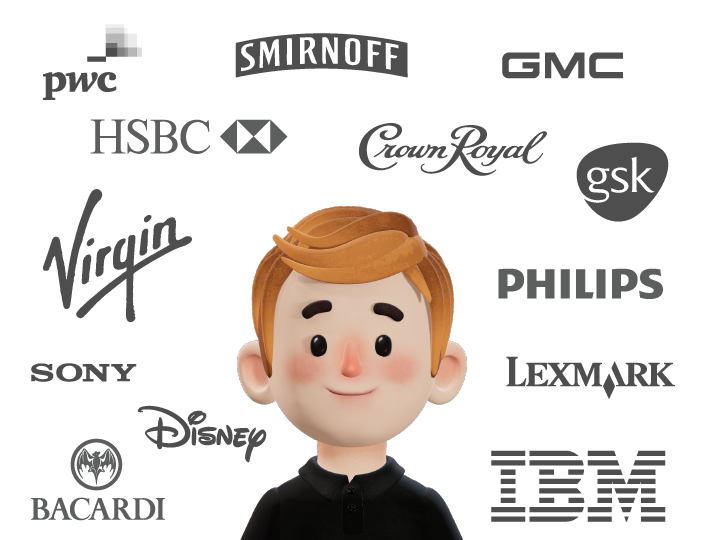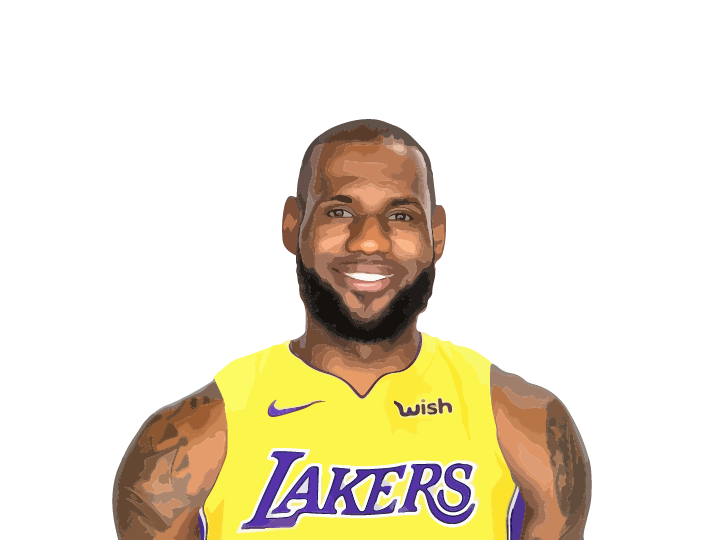Do Today’s Mega Corporations rely on the charisma of their leaders as part of their brand identity?
General Electric, Ford, Standard Oil, and others of that ilk still exist today, but they are no longer in the limelight. More importantly, their cultural relevance has been decreasing, along with the stature of their previous mantle on the front page or the nightly news.
We are all familiar with the usurpers, their influence on the way the modern world works, and the way that we live within it. The Three A’s (Apple, Amazon, and Alphabet, Google’s parent company) are all either approaching or past the $1 trillion valuation mark, making them the three biggest companies in the world by that metric. Each of them has radically shifted how we undertake fundamental parts of our lives (communications, commerce, information access), in a way that makes it more and more difficult to remember what our lives were like before.
These are the companies that have built the world we see today, but they are also heavily involved in shaping its future. For this reason, Elon Musk’s group of companies (including Tesla, SpaceX, The Boring Company, etc.) will also be added. While their impact to this point has been far less than the Three A’s, their work in creating an inspirational and exciting vision for the future is important and tangible. From electric, driverless cars, to commercial space travel, to extensive tunnel networks for easing traffic, Musk has done a great deal to get regular people thinking about the engineering possibilities of years to come.

Brand Identity Icons of the Information Age
A common theme between our Futuristic Four (Apple, Amazon, Google, and Tesla), is the simplicity of their branding and logos. Each of the logos, perhaps excluding Tesla, is more recognizable than most national flags.
Over the next day, try keeping a rough mental count of how many times you see each of these, versus how many Canadian or American flags you see. While I’m sure we all already know what the results of this little study will be, it still speaks to just how iconic these logos are. Each of them is designed for maximum flexibility. Due to the ever-evolving nature of these industries, the designs must be versatile enough to appear on technologies that weren’t even conceived when the creative process was taking place. Designing within this ultra-volatile, ultra-visible arena is quite the task, but the reverence that people view these brands with, beyond their products and philosophies, speaks to the success of the branding. If aliens were to visit Earth on the day of a new iPhone launch, or on Amazon Prime day, they could be forgiven for thinking that the little apple or smiling arrow was some kind of religious symbol. In fact, they are as emblematic of the modern age as a cross, crown, or Star of David are for certain periods in history. However, while the designs for each of these companies have a shared simplicity, there is another element of branding that affects each of them in varying degrees, for better or for worse.
Leaders As Brand Identity
Like most enormous companies, these tech/futurism giants are each equipped with an origin story. These now float around our culture almost like modern mythology. Google founders Larry Page and Sergey Brin, developed their search algorithm at Stanford, to solve the problem of the early internet being ‘like a library without a catalog.’ Steve Jobs and Steve Wozniak, in a garage in Silicon Valley, imaging personal Apple computers as part of the famed Homebrew Computer Club. Jeff Bezos, also in his garage but in Seattle, huddled around boxes of books to sell during the internet boom, planting the seeds of his ultimate marketplace. And Musk, using some of his PayPal money to start an electric car company where he wanted to create, as he has put it, ‘the most fun thing that you could possibly buy.’
A key component of a good branding strategy is understanding that every public interaction that a company has is part of the brand identity. With these stories holding a large place in the public consciousness, the narratives, and the men involved in them, are as integral to the brand as the logos discussed above. Due to this, it’s important to take a look at the role of leadership for each of the companies, to see how those in charge either add to or detract from, the renowned flexibility of the tech giant's branding.
Google - Larry Page & Sergey Brin
Out of all of these companies, Page and Brin are by far the least visible of the leaders/founders. While Google is the first page that many people see as they open up their internet browser, its founders have stayed relatively isolated from the public, at least compared to other tech icons. Their revolutionary search algorithm has put so many people’s faces and stories at our fingertips, but Googling is also our main access point to the two billionaires. In contrast to the visibility of Jobs or Bezos, Page and Brin are more often replaced in public forums by other Google executives, like former CEO and current Alphabet Executive Chairman Eric Schmidt, or current CEO Sundar Pichai.
Among the four companies we’re exploring here, Google’s founders have the least involvement in the company branding and narrative; the vast majority of people couldn’t pick them out of a police lineup. Google’s strong branding and design presence are due to two main factors: its ubiquitous presence (sorry Bing) and its creative extensions. The Google homepage and logo are a revolving door of birthdays, celebrations, and interactivity, showing new avenues for creativity, without ever sacrificing their signature playful color scheme. Due to the privacy of its founders and the already-exhibited flexibility of its brand identity, Google shouldn’t fear a loss of brand identity if/when Page and Brin move on from the company, because the brand is not tied to leadership in the upcoming ways that we will examine with the other companies.

Amazon - Jeff Bezos
There is an argument to be made that Bezos is the world’s most powerful businessman. Amazon, of which he owns ~17%, has grown from its humble digital bookstore beginnings to control online commerce, and with purchases of companies like Whole Foods, commerce generally. Bezos is often portrayed as the captain piloting this enormous ship, having made the transition from coder to the conqueror. While the other tech companies here share a focus on meeting a centralized vision, years in the making, Amazon seems to be growing and evolving into an unknown future, absorbing everything in its path. The combination of this maverick attitude with his wealth has made Bezos into a sort of capitalist superhero, charting a course to either world domination, or spectacular collapse.
While Bezos is Amazon’s figurehead, its branding and design are quite separate from him. More so than any of the other companies being examined here, Amazon’s brand equity and identity are tied to its processes, rather than its products. The company is primarily a facilitator, rather than a producer, with mediating purchases of others’ goods at the forefront, rather than marketing their own. Their coy little logo doesn’t instill the same feeling of status that Apple does, but it does exude consumer confidence, replicating the smile that consumers get when their package arrives on time. For these reasons, it’s easy to see that Amazon’s brand value wouldn’t be overly affected by Bezos’ departure. His presence is more visionary than practical, and the processes and philosophy that he has set in place have made Amazon a well-oiled selling machine.
Apple - Steve Jobs
Out of this group, Apple is the only company that has had to deal with the reality of replacing a leader/founder. Steve Jobs’ death of pancreatic cancer, in 2011, necessitated the company moving on without its visionary captain. Despite Wozniak’s crucial input in Apple’s early days, Jobs was responsible for the meteoric growth in visibility that the company experienced while being acknowledged as the godfather of Apple’s key products. Since Jobs’ death, Apple has been led by Tim Cook. While the company is still humming along successfully, many tech pundits do note the fact that Apple’s product line of the past decade has failed to inspire the paradigm-shifting enthusiasm of the original iPhone launch in 2007.
In many ways, Tim Cook, in his more conservative, less public role, is an ideal caretaker for the behemoth that Jobs created. While Apple’s products have failed to live up to the sky-high expectations put on them both internally and externally, they still dominate the high-tech sector in terms of brand recognition. Despite recently being outsold in the global smartphone market by competitors Samsung and Huawei, the iPhone and Apple brands still reign supreme in consumers’ eyes. This, more than anything, is perhaps the lasting testament to Jobs’ vision: Apple is associated more with innovation and futurism than any other brand, regardless of the reality behind these associations.
Tesla Et al.- Elon Musk
Musk’s companies differ from the previous three in many ways, but the primary one is how his fame arguably eclipses that of the company brands. There is a good case to be made that he is the most famous of all of the founders mentioned here (especially due to Jobs’ passing), and this fame is exponentially influential on the brands of his companies because they lack the stable history and success of the Three A’s. In the media and culture, Musk is viewed as a nearly unparalleled visionary but also ridiculed because of the perceived lack of production based on these grand visions. Due to these strongly opposing forces, his personal brand, and those of his companies, ride the rollercoaster forged by his ego and the modern media climate.
A prime example of this rollercoaster is what occurred the day of Musk’s appearance on The Joe Rogan Experience, one of the most popular podcasts in the world. Rogan offered Musk a blunt, which Musk smoked after saying “I mean, it’s legal right?” This single toke of marijuana caused Tesla stock to drop 9% the day the podcast and accompanying video was released. Disregarding whatever ethical or social concerns some may have regarding marijuana use, what matters here is the way the public, and stockholders, view Musk and his behavior: as increasingly unhinged. The outrage of his smoking the blunt wasn’t about the act itself; it was about a litany of other matters, including Tesla’s recent financial difficulties.
In this way, the brands of Tesla and Musk’s other companies are irreparably tied to their leader. The visions behind each company are fuelled by Musk’s intellect and charisma, but a concerning lack of actionable products has made his position on his futuristic pedestal more tenuous than ever.
What Tesla, SpaceX, or The Boring Company, are without Musk at the helm is basically unknowable at the current moment, because he is the brand, for all intents and purposes. If he is able to turn each into the next Apple, Google, or Amazon, we will be able to judge the brands independently of their leader. Will Tesla be relatively faceless but ubiquitous like Google? Or a well-oiled machine like Amazon? Or will its own version of Tim Cook come along, to take over the Jobs role that Musk currently holds? Only time will tell, but it is likely that what is told will be fascinating.


